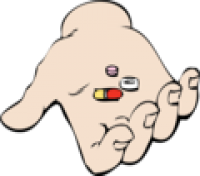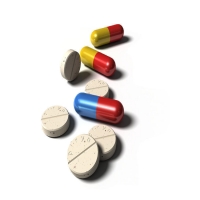 Who can best answer your medication-related questions? Your doctor? A pharmacist? The Internet?
Who can best answer your medication-related questions? Your doctor? A pharmacist? The Internet?
What are the best times/conditions to take specific medications?
How are pills, capsules and tablets identified without the benefit of original packaging or bottles?
What information should be included in an accurate medication/supplement list in case of emergency or in preparation for a health appointment?
Attend this workshop and learn how to be “smart” about all things medication-related!
Who can best answer your medication-related questions?
- Your doctor (nurse, healthcare provider)
- A pharmacist
- The Internet
Credible information can be received from all three places, but remember that everyone is unique and only healthcare specialists (pharmacists, doctors, nurses) are trained to apply information to specific people and their unique medical histories
Medication Errors: Cut Your Risk With These Tips (Mayo Clinic)
What are the best times/conditions to take specific medications?
Remember, medication is all about chemistry! READ the directions before taking any medication. Common directions include:
- take on an empty stomach (2 hours before or after eating)
- take with a meal (or "when stomach is full")
- take with a full glass of water (8 oz)
- avoid grapefruit juice or citrus when taking this product
- take with milk (or take without milk or dairy)
- avoid certain activities while taking medicine (don't operate heavy machinery)
- take at a specific time (bedtime, morning or afternoon)
- timing when you take medications is called chronotherapy
For more information:
Using Medications Safely (American Society of Health-System Pharmacists--ASHP)
Timing When to Take Your Daily Medications (AARP)
Medicines: Common Questions Answered(NIH)
Reading medication labels
Prescription Medicine Label image and short video (Wisconsin Literacy, Inc.)
How to Read an Over-the-Counter Medication Label (ASHP)
Over the Counter (OTC) Drug Labels: Tips for Preventing Unintentional Poisonings(NCPC)
How to identify pills, capsules and tablets
 Drugs (pills, capsules and tablets) can be identified by imprint codes (the letters and numbers on a drug), shape, and color
Drugs (pills, capsules and tablets) can be identified by imprint codes (the letters and numbers on a drug), shape, and color
Pill Identification Tool (RxList)
Pill Identifier (drugs.com)
Pillbox (National Library of Medicine)
Sample medication/supplement Lists
When creating a medication/supplement list, it is important to not only include the medication name, dosage and how/when you take it, but to also include WHY you take the medicine (for what condition/disease). You should provide an updated MASTER list (including all medications and supplements) to all of your healthcare providers and to every pharmacy that you utilize. Clear communication and sharing will help prevent drug interactions or overdoses.
My Medicine List (American Society of Health-System Pharmacists--ASHP) PDF available for download in English and Spanish
Universal Medication Form (ISMP--Institute for Safe Medication Practices) PDF attached for download
For more tips on medication safety including running drug interactions, attend the Drug Interactions Workshop